| If I Ran Star Trek, part three
By Michael David Sims
04 September 2018 — To date we've examined how I would bring Star Trek back to television screens and cinemas. However, through CBS All Access, Netflix, Amazon, Hulu, YouTube Premium, and other streaming services, the creative minds behind the Star Trek franchise have many more outlets to bring its fans new series, characters, and situations in which to explore the endless universe of Star Trek. Beyond the above-mentioned services, one must consider what type of content to place on these digital platforms. Though Discovery is doing well on CBS All Access, I'm not sure an ongoing, multi-season program is the right fit for these avenues. Rather, I would prefer to see new Star Trek shows in the mold of the original intent of Discovery: anthology series.
By focusing on one crew or one character for a single season, then moving on to the next crew or character, one is allowed the freedom to expand the Star Trek universe in rapid-fire fashion. It also serves as a testing ground. If a show is popular enough, it could live on past its one-season design. If the response is mixed, the show won't be seen as a failure; it was only meant to tell this one story from the jump.
To this end, not only will we be discussing possible one-season, online-based Star Trek programs, we will be doing so with the express aim of making this single-character specific. Obviously there will be other characters in each of these programs, but these shows will be much more personal. We're going to drill down to get to know the lead characters better than ever before.
CAPTAIN PIKE
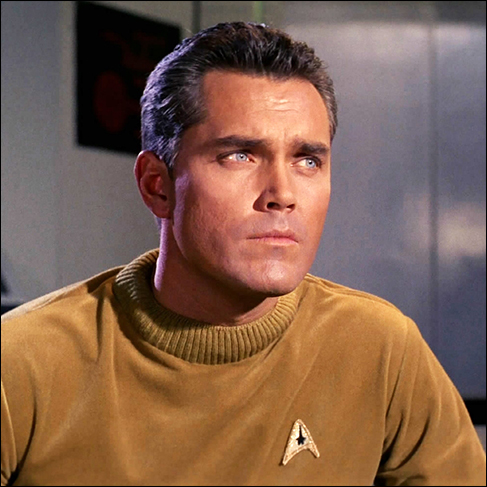
There are two options:
- A retro throwback to the original NCC-1701 Enterprise, complete with a 1960s aesthetic.
- An Anson Mount-led show set aboard the Discovery-era USS Enterprise.
For the former, I imagine the show being a fun-yet-respectful look at classic Star Trek, one which retains all of the original design elements: flashing lights, chunky levers, colorful blocks slid into slots, bright uniforms. The whole lot. Plus we'd finally experience a diversified Enterprise, as we'd see crewmembers of all genders and races in key roles. And thanks to better makeup and filming techniques, there would be more than one non-human aboard the ship. Gene Roddenberry's vision for the future was progressive at times, but still very anchored to the 1960s. A classic-looking Pike-led show would better express Roddenberry's idea of what the future could be.
Diversity isn't the only reason to revisit that era of Star Trek, nor is nostalgia. It's the ability to experiment. Over the 50-plus years Star Trek has been in popular culture, it has pushed boundaries and redefined itself multiple times over. So let's push that once more. Granted, producing a throwback television show or movie might not work. However, as a one-season, 13-episode program released exclusively on a streaming service, now we're talking. Online content can bend and break the rules. Movies and TV shows can take chances, but big leaps are few and far between.
As for the other Pike-led show, as we saw with the overlaps of The Next Generation and Deep Space Nine, and later Deep Space Nine and Voyager, the producers of Star Trek are not afraid of having two shows on the air at the same time. Shows which sometimes interact, as seen in the pilot episodes of Deep Space Nine and Voyager. With the ending of the first season of Discovery now in the books and season two on the horizon, the inclusion of Captain Pike into Discovery provides the opportunity to create a backdoor pilot for a Pike-helmed Enterprise. Should viewers respond to Anson Mount as Pike, Discovery could very easily windup with a sister program. And since we know Rebecca Romijn and Ethan Peck have been cast as Number One and Spock, we'd already have our lead, co-stars, and sets at the ready.
While I'm not sure what adventures Pike and his crew would get up to circa 2257, we'd have the opportunity to see a younger, inexperienced Spock. One that might be a little more human, a little more willing to smile on adventures for example. And Number One could finally become a fleshed out character with a name.
This is all about Pike, though. What's his story here? If you've seen "The Cage" you may recall that Captain Pike confided in his friend / doctor that he was burning out. And since this show, as well as Discovery, are set in the same universe as the original series, this season could give us the beginning of the end for Captain Pike. Maybe we don't see his final adventure, the one that left him trapped inside his own mind, but we'd be following a man who realizes his time as captain of The Enterprise is winding down. Thematically, it would align with Captain Kirk's arc in the original series movies — that being a man who cannot cope with his ever-increasing age. Maybe he's starting to make mistakes, maybe he's slower, maybe he's closed himself off to new friendships and experiences. There's a lot to explore with a character that's a well-known name in Star Trek fandom but is still a blank slate in the original timeline.
JAKE SISKO
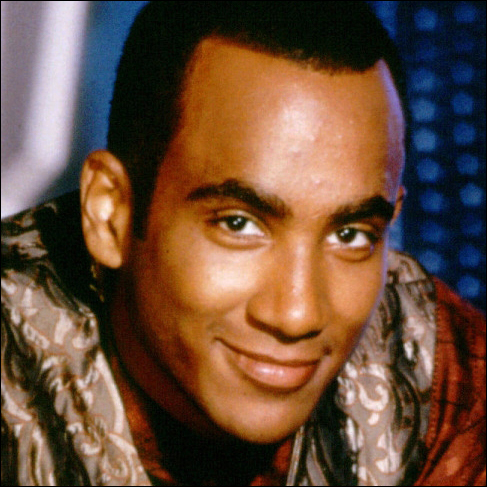
Okay, yeah, this is probably my strangest one, but hear me out.
His mother long dead. His father disappeared. His best friend off on starship adventures. His aging grandfather lightyears away. And his stepmother and sibling on freighter missions. Jake Sisko is alone. But he's okay with that. Saddened, but okay. And he takes this sadness and pours it into his writing: journalism, poetry, fiction. He travels the Alpha and Gamma Quadrants looking for stories to tell, for people to immortalize. He might not be able to connect with his friends and family, but he has his craft.
But that might not be enough to save his life.
Slowly, and initially by complete accident, Jake begins to uncover a conspiracy involving the death of a holosuite programmer, a forgery, the sale of bio-mimetic gel, and the assassination of a Romulan senator. When all roads lead back to Deep Space 9 and, worse, his father, Jake is crestfallen. Initially he chooses not to believe the facts, but when he uncovers his father's deleted log confessing the truth, he can no longer lie to himself. His father — Captain Benjamin Sisko, Emissary of the Prophets — conspired to bring the Romulans into the Dominion War with forged evidence, and covered the crimes of his co-conspirators.
After Jake approaches his editor with the story, never revealing the full scope of it, his editor is found dead. A warning or a coincidence? When Kasidy Yates' ship is crippled, nearly killing her and her now-adult child, it's clear someone is sending a message to Jake: shut up or everyone you love dies. But who's attempting to silence him, and where can he turn? And at the core of it all, a simple question: is pursuit of the truth worth the price of soiling his father's reputation and potentially starting a new war with the Romulans?
So yeah, a political spy thriller starring Jake Sisko as a Woodward and Bernstein-type investigative reporter. Filled to the brim with classic man-on-the-run action and endless pathos as Jake learns of his father's involvement in the conspiracy — that his father crafted the conspiracy — this story is tailor-made for a short-run format in that it has a defined beginning, middle, and end. Once the final credits roll, there is no need for a sequel series. One would have received a complete story which digs into a very dirty, personal party of the Sisko legacy.
THE TRIAL OF CAPTAIN JANEWAY
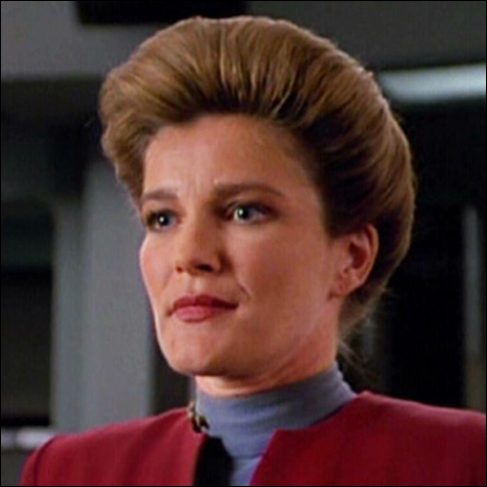
During her time in the Delta Quadrant, Captain Janeway's actions were often heroic; they embodied the very spirit of The Federation. To save a single race, she chose to strand her crew so far away from home that they would probably never see it again. She folded the rogue Maquis fighters into her Starfleet crew, treating them like any other member of the crew. Whenever new races were met, Captain Janeway presented herself, her crew, and her ship as what they were: strangers in a strange land, but bringers of peace and acceptance. She is Starfleet.
However, despite all of Captain Janeway's self-sacrifices and leadership prowess, Starfleet would be remiss if she was not charged and tried for two heinous crimes: the murder of Tuvix, and conspiring with a future version of herself to rewrite 25 years of history.
Star Trek has never been afraid to put their characters on trial. Spock, Kirk, and Scotty were thrust before the court in the original series. Picard, Riker, and even Wesley were grilled by the courts on The Next Generation. Worf and O'Brien faced justice on Deep Space Nine. B'Elanna and Paris sat before Lady Justice on Voyager. Archer was brought before a tribunal on Enterprise. And Discovery only truly began when Michael faced her hearing. Though your mileage may vary when it comes to the entertainment value that arises from courtroom dramas, one cannot deny that they do elicit drama. From them we are presented tension, suspense, revelations, and growth. From a storytelling perspective, they allow us to see events from different angles and cliffhangers are baked into the very structure of the narrative. Through surprise witnesses, questions answered in unexpected ways, even the delivery of the verdict provides a clichéd yet timeless cliffhanger.
To the show itself, specifically the charges, the murder of Tuvix seems cut and dry. But is it? Janeway's actions are enraging, yet I would be fascinated to see her justify her actions. Captain Janeway snuffed out a newly created life to bring two friends back from oblivion. How would Starfleet, whose very charter is about meeting new life, react to her eradicating a one-person species? While this might not have the legs to stretch over a season, what would is her other crime.
Since Starfleet cannot put the time-displaced Admiral Janeway on trial for traveling back to 2378 in order to bring USS Voyager home 16 years early, they can place her co-conspirator on trial. Captain Janeway and Admiral Janeway used future technology to bring down the Borg transwarp network while getting their ship home ahead of schedule.
On paper, one might ask where's the crime; getting home was always Captain Janeway's goal. Who could fault her for that? While the end result is admirable, by going backwards in time to bring Voyager home 16 years early, Admiral Janeway erased and rewrote 26 years of history — and lives. Thanks to her actions, ripples will be felt across Earth, The Federation, two quadrants, and beyond. Babies will not be born, including Sabrina Wildman. By reshaping the timeline, the events that led to Sabrina's birth will never come to pass. People will live when they should have died, and vice versa. And while its true that Captain Janeway cannot be held accountable for the time-traveling actions of her future admiral-ranked counterpart, Captain Janeway chose to accept Admiral Janeway's help; she submitted herself to altering a quarter-century of history. Together with the admiral, Captain Janeway unilaterally (if one can do anything unilaterally whilst conspiring with another version of oneself) chose to affect the lives of billions upon billions of people, their safety, and the course their lives would have taken. This, all to save her crew.
Not only would we see how The Federation handles a situation this monumental, it would be an opportunity to bring in the Department of Temporal Investigation. Through their appearance we'd learn what Starfleet does with time-criminals. More importantly, however, we'd see how citizens of The Federation react when they learn their lives have been altered on the whims of one person. And a Federation in revolt could make for some rather interesting stories.
CAPTAIN SULU
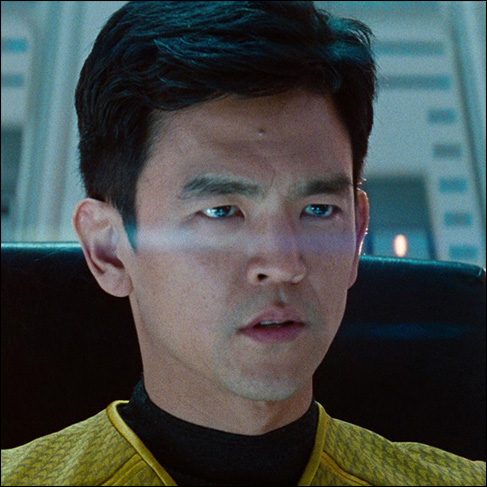
Much like Michael Dorn has championed a Captain Worf series, George Takei has been pushing for a Captain Sulu series for ages. And he's right. The few times we've seen Hikaru Sulu as captain or acting-captain, he's been amazing. A kind man with a firm hand, one who's trained under the best of the best of the best. This one-season Captain Sulu series would not feature George Takei, however. This would follow John Cho and would be set in the Kelvin-verse.
With rumors swirling that Chris Pine may not return as Captain Kirk, some have wondered if the almost decade-old new Star Trek franchise can continue. To which I say, "Of course. Sort of." Star Trek isn't all about Kirk. If it were, The Next Generation and everything that came after would have flopped and / or never been created at all. It is a living, breathing franchise with lush characters, ships, worlds, and stories to tell. If Paramount and CBS could come to an agreement pertaining to the use of the movie characters on smaller screens, now would be the time to launch Captain Sulu and a streaming service would be the ideal place.
Why though? Yes, Star Trek can continue without Kirk in the captain's chair, but it's too soon to hand the USS Enterprise NCC-1701-A over to another captain. And for a film series that's had diminishing box office returns, the loss of Pine's Kirk would potentially be catastrophic. However, slash all of the cast save John Cho's Sulu and you'd have something the bean counters inside Paramount and CBS could get behind.
Star Trek (2009) cost an estimated $150 million, whereas its two sequels came in at $185 million each. According to Variety, the first season of Discovery cost between $8 million and $8.5 million per episode. That's an estimated range of $120 million to $127.5 million. While this is a rather large bill to foot, split amongst the two parties (Paramount and CBS), the financial risk would be smaller. (So would the gains, but that's not the point.) The point is: a single season of Captain Sulu, a show more focused on developing the man than space battles, would not only come in under the $150 million spent on the 2009 movie, but would also cost less than the first season of Discovery.
And here's the bonus for both parties: this would be the first Star Trek franchise to move from cinemas to smaller screens. That means it could be used as testing ground for future Captain Sulu-led movies. It would serve as a soft reset of a franchise that's already been half-rebooted. If this single season is a success, it could be moved back to cinemas to kickoff a new line of Star Trek movies with a familiar face. It would allow audiences the opportunity to get used to the idea of Kirk-era Star Trek without Kirk.
But while it is on a streaming service, we would experience Sulu's growth. We've already seen him go from the man who forgot to deactivate the inertial dampeners before his first mission to the guy in the captain's chair threatening to obliterate Khan. We know he can handle it, but that doesn't mean he's not nervous or won't make errors. How he grows is the real adventure.
DAX
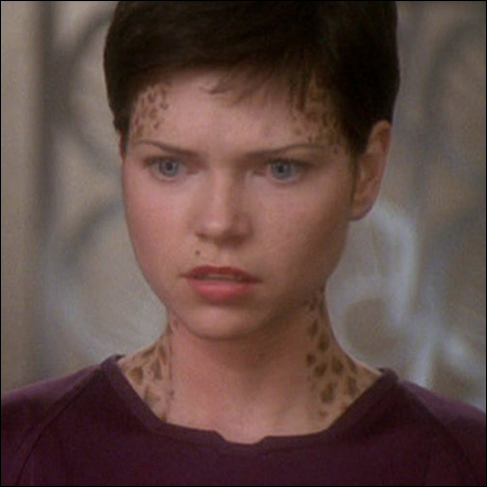
Heading into the seventh and final season of Deep Space Nine, producers had to make an impossible decision: leave the Dax character dead (or at least off the show) or re-cast a much-loved character. They chose the latter, and hired Nicole de Boer to play Ezri Dax (née Tigan) — a young, inexperienced officer who was forced to accept the Dax symbiont very much against her will. Throughout the season, the creative minds behind Deep Space Nine did their absolute best to balance introducing a new character into a tight-knit cast all while wrapping up the show. In this they hit and missed.
Despite their best efforts to push Ezri to the forefront, she never fully extended her wings. Whereas Terry Farrell had six full seasons to flesh out Jadzia Dax, de Boer had only a handful of episodes. Due to this, and in my mind, a wonderful character was under-explored.
When we met Jadzia in the very first episode of Deep Space Nine, she was already ranked Lieutenant and had been joined with the Dax symbiont for two years. She was well-adjusted to her Starfleet career and life as the joined Jadzia Dax. Ezri is none of that; she never even wanted to be a joined Trill; she was thrust into the role by the simple fact that she was the closest Trill to the dying Dax symbiont. If she refused, Dax would have died. She was quoted as saying:
"I laid down on that operating table one person and I woke up a completely different person. Well, I should say eight different people. I was not prepared for this at all. I mean, you're supposed to get years of training and preparation before you get joined, and all I got was a fifteen-minute lecture from the ship's surgeon, and he wasn't even a Trill."
This is where the proposed Dax series begins. Ezri is now comfortable in her career as a counselor, yet she's still unsure of herself as Dax. Her personality was forever altered the moment Dax was inserted into her system, and her aspirations changed from that moment. Is she the person she wanted to be? With no other Trills to turn to, Dax undergoes a trance-inducing ceremony to consult the previous hosts. And this where we truly take advantage of the anthology nature of this limited-run format.
With eight official hosts, and two that hijacked the Dax symbiont, Ezri metaphorically climbs into Dax's mind to visit and consult every prior host. Since Dax was first joined to a Trill in 2168 and Ezri did not receive Dax until 2374, the writers of the show would have a two-century window and numerous locations in which to set stories. And, again, with 10 prior hosts, this perfectly fits a 13-episode anthology series. The first two episodes would establish Ezri as she is now and what she's about to undertake, then episodes three through the penultimate would feature Ezri visiting each of the hosts, and the 13th / final episode would see Ezri emerging from her trance a more balanced person. Possibly even the perfect Dax host. Not only has she reconciled her life as a joined Trill, but she would have calmed any lingering trauma the Dax symbiont carried from its many lifetimes. A Dax-focused show would truly take advantage of fresh locations and themes from one episode to the next, all while telling a larger story from start to finish. And it would give us a chance to finally see Ezri's full potential.
* * * * *
Single-season shows are difficult to pull off, especially since audiences have been trained to see them as failures. With any of these, I hope to not only explore strange new worlds and situations sets against a Star Trek backdrop, but also help audiences come to see that limited series programs can be some of the most rewarding viewing experiences. Doing so on broadcast or cable television might not be the way to go, but streaming services are a lush, new sandbox in which we can play and experiment with storytelling.

.: about :: donate :: contact :.
© 2004-2026 its respective owners. All rights reserved.
|

